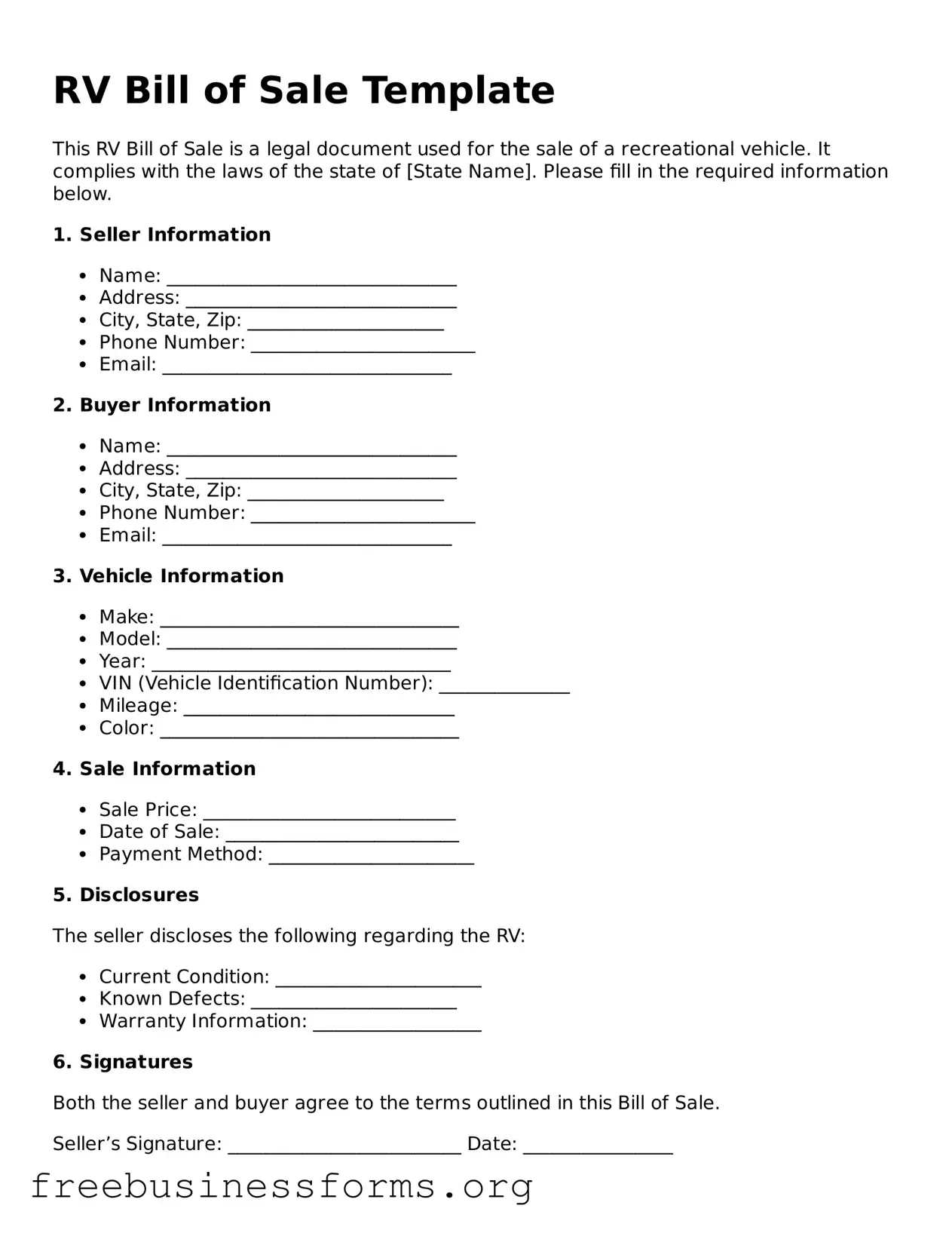Official RV Bill of Sale Form
An RV Bill of Sale is a legal document that records the transfer of ownership of a recreational vehicle (RV) from one party to another. This form serves as proof of the transaction and includes essential details such as the buyer's and seller's information, vehicle specifications, and the sale price. Understanding this document is crucial for both buyers and sellers to ensure a smooth and legally compliant transfer of ownership.
Open Form Here

Official RV Bill of Sale Form
Open Form Here

Open Form Here
or
↓ PDF File
Quickly complete this form online
Complete your RV Bill of Sale online quickly — edit, save, download.